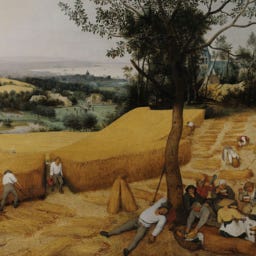Illich explains that value is “a generalization of economics. It says, this is a value, this is a nonvalue, make a decision between the two of them. These are three different values, put them in precise order.” “But,” he goes on to explain, “when we speak about the good, we show a totally different appreciation of what is before us. The good is con... See more

